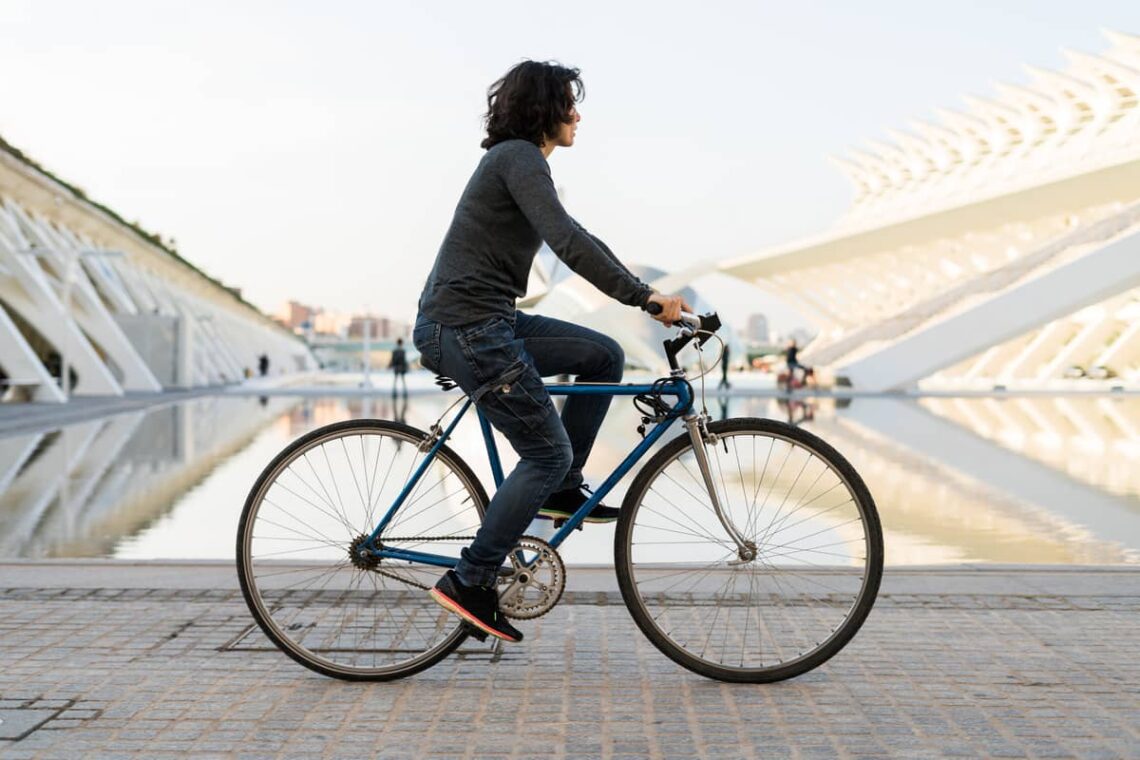
Texas law defines DWI as intoxication while operating a motor vehicle in public. While most people associate DWI with drunk driving, DWI laws apply to any intoxicating substance and any type of motor vehicle. Intoxication can refer to being impaired because of alcohol or drug use, having a blood alcohol level above the legal limit, or both. The law is written broadly enough that self-powered vehicles like bicycles can be considered motor vehicles for the purposes of charging someone with DWI. While being convicted of DWI on a bike is unlikely, it is possible under Texas law. Regardless of the vehicle you were operating, DWI convictions can have serious consequences like fines, jail time, and driver’s license suspensions. It’s always important to pay attention to your intoxication level so you can travel home safely and legally, regardless of whether you’re driving or cycling.
Not All Bicycles Are Equal
While it’s pretty clear that a traditional bike is powered by the rider and is not truly a motor vehicle, electric bikes complicate the situation. E-bikes look very similar to regular bikes, except that they have a motor and a battery. When the rider pedals, the bike’s motor starts working so the rider doesn’t need to exert as much effort. E-bike motors aren’t usually designed to go faster than a typical rider would be able to pedal. This means riders of e-bikes and traditional bikes will usually travel at similar speeds.
Texas’s transportation code defines an electric bicycle as a bicycle that has both pedals and an electric motor that’s less powerful than 750 watts with a top speed of 28 miles per hour or less. The law also defines three classes of electric bicycles depending on the motor speed and whether the rider needs to pedal to power the bike.
Can You Get a DWI While Riding a Bike?
While the Texas Transportation Code uses a narrower definition, DWI law in Texas defines a motor vehicle as a device on which a person may be transported on a highway. This definition is broad enough to include both traditional bikes and e-bikes, meaning that riding a bike while intoxicated can lead to a DWI charge. The legal definition of a motor vehicle doesn’t set any criteria for the method used to power the vehicle, which means it doesn’t exclude self-powered bikes.
Since the law specifically refers to transportation on a highway, you’re most likely to be charged with DWI if you’re riding a bicycle on the road with cars. If you’re riding somewhere like a bike path in a park, you’re less likely to be treated as a motor vehicle and charged with DWI.
Even if you aren’t charged with DWI, you might be charged with public intoxication. In Texas, you can be charged with public intoxication for appearing in a public place while intoxicated to the point where you could be a danger to yourself and others. If you’re drunk or otherwise intoxicated and riding your bike erratically or unsafely, this could be treated as public intoxication rather than DWI.
Penalties for Biking While Intoxicated
If a police officer has arrested you and a prosecutor does decide to charge you with DWI, you’ll be facing the same penalties you would for drunk driving in a car. DWI penalties start at a minimum three-day jail sentence and can increase substantially if you’re convicted multiple times.
For a first offense:
- A fine of up to $2000
- Between three and 180 days in jail
- A driver’s license suspension of up to a year
For a second offense:
- A fine of up to $4000
- Between one month and one year in jail
- A driver’s license suspension of up to two years
For a third offense:
- A fine of up to $10,000
- Between two and 10 years in jail
- A driver’s license suspension of up to two years
Texas can also impose a state fine when you receive a sentence for a DWI, which can be several thousand dollars.
Texas also imposes additional DWI penalties on drivers who have underage passengers in their vehicles. If you bike with a child in a baby seat or a trailer, these additional penalties could apply when riding a bike as well.
While it’s a less serious charge, public intoxication is a Class C misdemeanor, which can result in a fine of up to $500. Like DWI, the penalties can become more serious if you’re charged with the same crime again.
How to Avoid Biking While Intoxicated
Whether it’s to reduce your carbon footprint, to save money, or simply out of personal preference, there are many reasons why a bicycle might be your primary form of transportation. While you might be less likely to be charged with DWI on a bike, cycling while intoxicated is still a safety risk for both you and other cyclists and drivers on the road. This means you should always plan ahead before a night out or other events where you expect to drink enough to be impaired. Don’t treat your bike as a safer alternative to driving.
Most parts of Texas don’t have extensive or reliable public transportation systems. However, if you live in Austin or another city with some bus or train service, this could be a safe and affordable way to get home. Otherwise, you’ll need to budget for a cab or rideshare. If this isn’t feasible, a ride from a sober friend is another good option. If you can’t get home safely, staying where you are may be the safest thing to do.
While getting a DWI on a bike isn’t necessarily likely, it is possible under Texas law. Regardless of possible legal consequences, biking on the road while impaired is dangerous, both for you and for others. To stay safe and avoid legal risks, don’t ride your bike while drunk or high, and look for a safer ride home.
